China accuses Australia of ‘systemic racism and hate crimes’ as Xi meets Putin in Russia
Beijing has launched a tirade against Canberra after an Australian diplomat raised concerns about human rights abuses in Xinjiang and Tibet as President Xi meets Vladimir Putin in Russia.
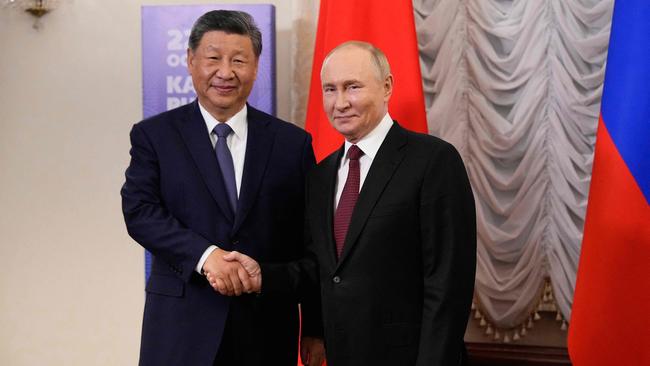
China has accused Australia of “systemic racism and hate crimes” and “hypocrisy” after an Australian diplomat raised international concerns about human rights abuses in Xinjiang and Tibet in the UN.
In some of the sharpest comments launched at Canberra by Beijing during the “stabilisation” era, Chinese foreign ministry spokesman Lin Jian on Wednesday evening denounced Australia for criticising China publicly.
“Out of their ideological bias, Australia, the US and a handful of other Western countries stoked confrontation at multilateral platforms for their selfish political interest,” said the Chinese foreign ministry spokesman, in response to an apparent dorothy dixer by China’s national broadcaster CCTV.
“Australia, long plagued by systemic racism and hate crimes, have severely violated the rights of refugees and immigrants, and left Indigenous people with vulnerable living conditions,” the Chinese government spokesman continued.
“Australian soldiers have committed abhorrent crimes in Afghanistan and other countries during their military operations overseas.
“These Western countries turn a blind eye to their severe human rights issues at home but in the meantime point their fingers at other countries. This says a lot about their hypocrisy on human rights,” he said.
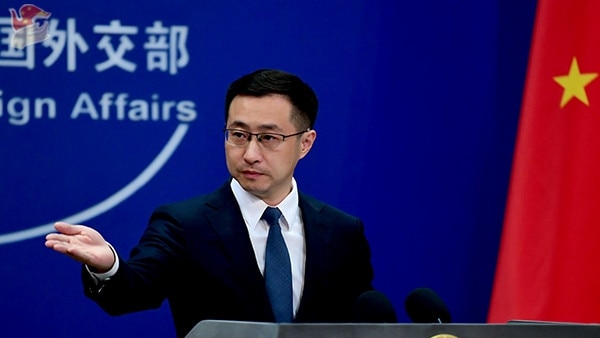
The Chinese Foreign Ministry’s counterpunch followed accusations by China’s UN Ambassador Fu Cong that Australia and its allies and partners were resorting “to lies to provoke confrontations.”
Anthony Albanese said Australia had been “clear and consistent” with China in its concerns over Beijing’s human rights abuses.
“We, of course, will always stand up for Australia’s interests. And when it comes to China, we’ve said we’ll cooperate where we can, we’ll disagree where we must, and we’ll engage in our national interest” Mr Albanese said at a press conference in Samoa on Thursday.
“And we’ve raised issues of human rights with China. We’ve done that in a consistent and clear way,” the PM said.
Opposition foreign Affairs spokesman Simon Birmingham said Australia’s ambassador to the UN had been “factual, balanced and considered”.
“Australia has acknowledged that none of us is perfect on human rights, yet that is what China pretends,” senator Birmingham said.
But he said the government’s words underscored that Foreign Minister Penny Wong had fallen “a long way short of delivering on the tough talk of sanctions” she made before the last election.
The diplomatic tussle comes as President Xi meets with Vladimir Putin at the BRICS summit in the Russian city of Kazan, a key plank in their shared efforts to increase China and Russia’s voices in the international system and reduce the clout of America and its allies.
The group’s original members include countries with strategic ties with America, such as India, and countries that are openly hostile to Washington, such as Russia.
Chinese state media has hailed the grouping, which it argues is reshaping the international system to give more clout to marginalised non-Western countries.
China’s official newsagency Xinhua noted that Xi had compared the five original members of the BRICS group, Brazil, Russia, India, China and South Africa, to the fingers of one hand.
“They are short and long if extended, but form a powerful fist if clenched together,” Xi reportedly said.
China’s fresh diplomatic fight with Australia — redolent of the near daily tirades it launched at the Morrison government for much of 2020 and 2021 — demonstrates the intense struggle that continues below the surface of “stabilisation”, the Albanese government’s euphemism for its modest expectations for relations with Beijing in the Xi era.
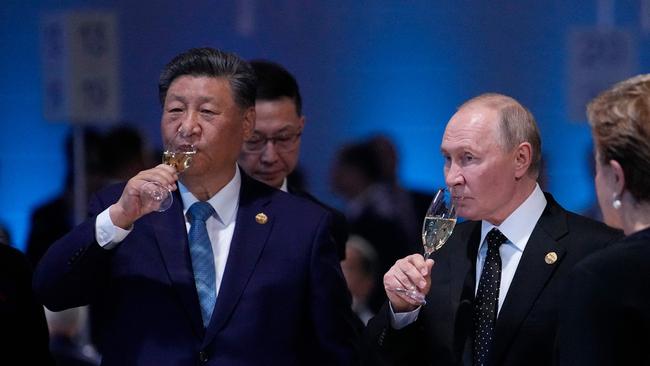
China’s president has ordered his diplomats to show “fighting spirit” when their country is criticised.
Earlier this week, Australia’s UN Ambassador James Larsen told the UN General Assembly’s human rights committee that Canberra, on behalf of its partners, had urged Beijing to implement all the recommendations made by a UN report into human rights abuses in Xinjiang, home to most of China’s Muslim Uighur population.
The Australian Ambassador noted that rather than meaningfully address the UN’s “well-founded concerns”, China had instead labelled the UN assessment “illegal and void”.
Mr Larsen called on Beijing to allow “unfettered and meaningful” access to Xinjiang and Tibet for independent observers, including from the UN, to evaluate the human rights situation.
“No country has a perfect human rights record, but no country is above fair scrutiny of its human rights obligations,” the Australian diplomat said.
“It is incumbent on all of us not to undermine international human rights commitments that benefit us all, and for which all states are accountable,” he said.
Chinese diplomats were able to blunt the criticism by rounding up countries — almost entirely members of its Belt and Road Initiative — to support its position or withhold support for the Australian motion.
Pakistan, a huge recipient of Chinese financial support, delivered a joint counter statement on behalf of 80 countries that said any issues related to Xinjiang, Hong Kong and Tibet were internal matters for China.
Australia’s joint statement was supported by Canada, Denmark, Finland, France, Germany, Iceland, Japan, Lithuania, the Netherlands, New Zealand, Norway, Sweden, United Kingdom, and the US.
Benjamin Herscovitch, an expert on the bilateral relationship, at Australian National University, said despite the “diplomatic sparring”, both the Australian and Chinese governments would keep prioritising their respective trade and investment agendas.
“This is sharper rhetoric than we usually see from either Canberra or Beijing in the recent stabilisation era. But it’s unlikely to cause serious turbulence in bilateral ties.
“Disagreements over human rights are baked into the Australia-China relationship,” Dr Herscovitch told The Australian.


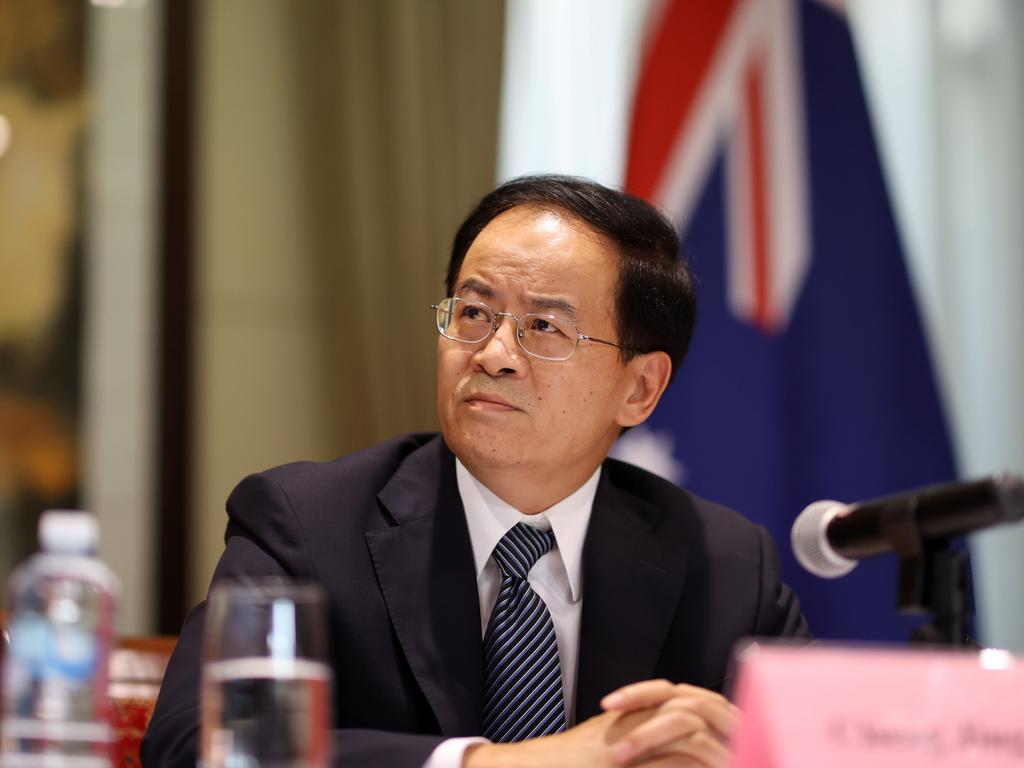
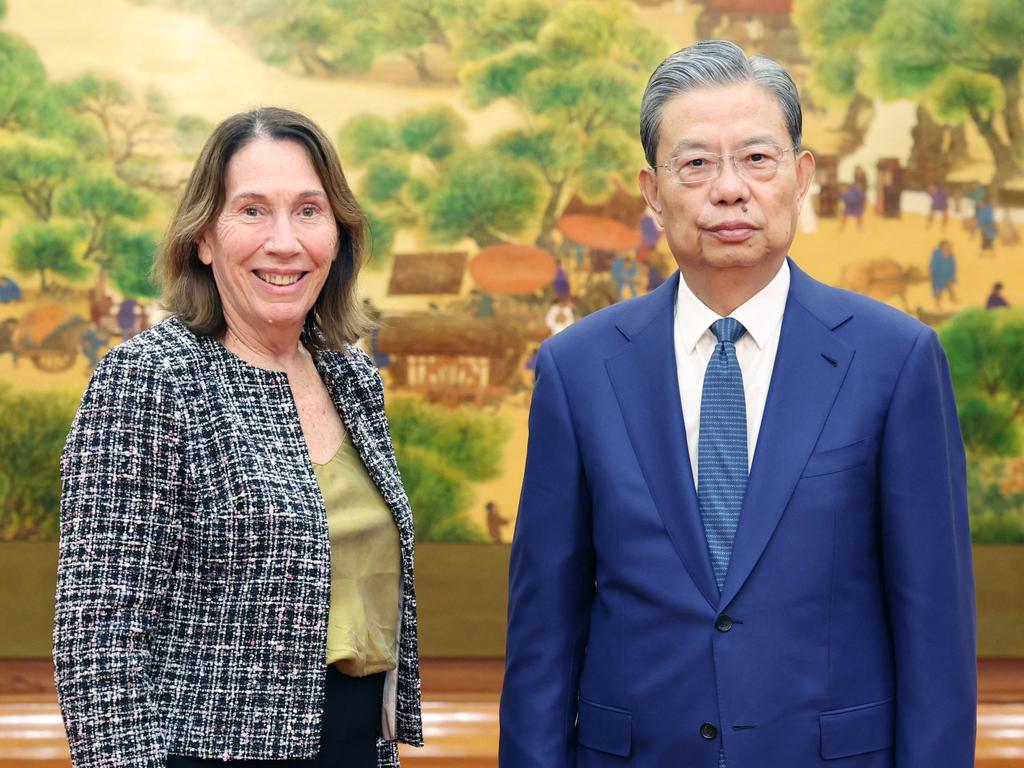
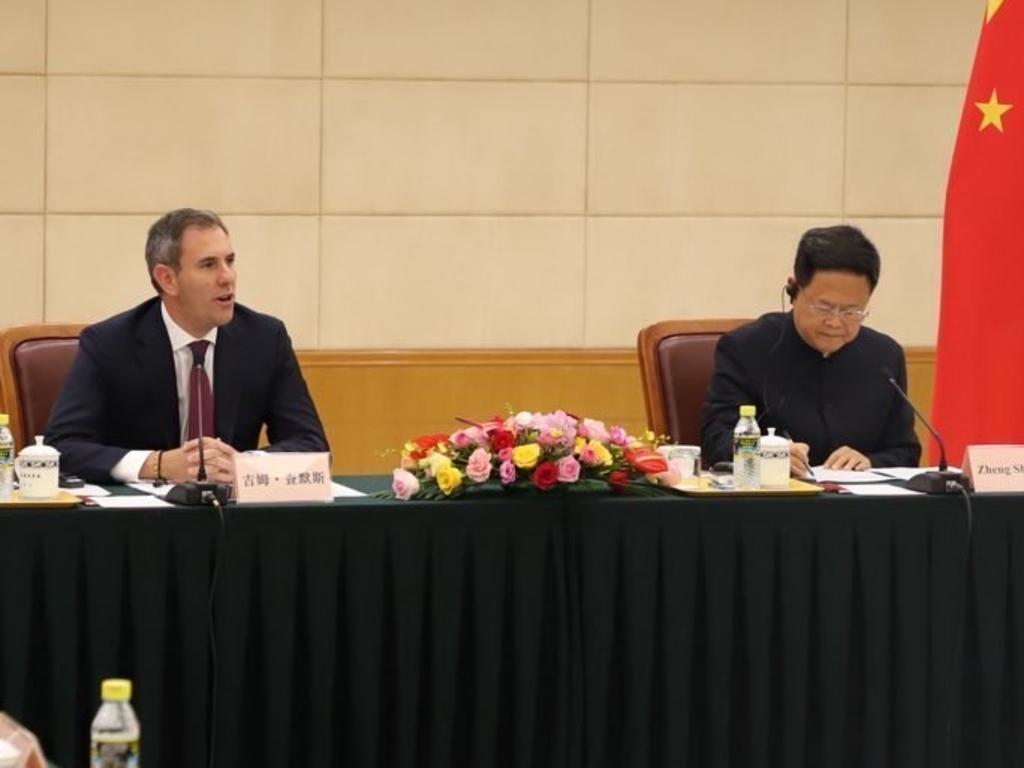


To join the conversation, please log in. Don't have an account? Register
Join the conversation, you are commenting as Logout